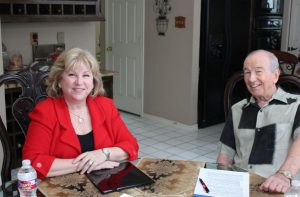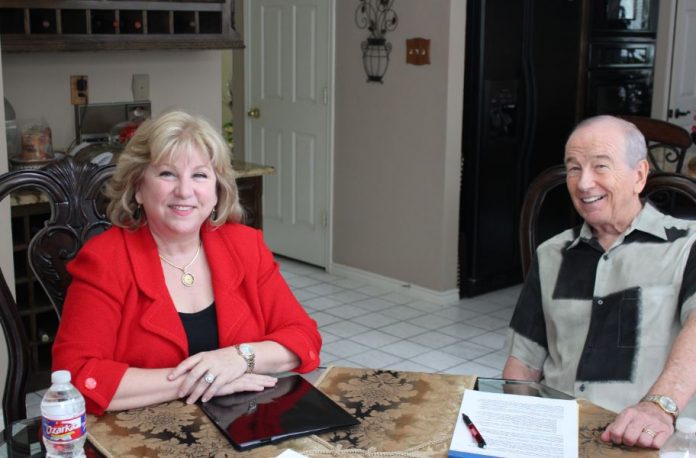
What’s the first thing you think about when you hear that the legislature just passed the recent budget? If you’re like most people you want to know how much it’ll cost you this time.
Secondly, you want to know what your taxes are paying for and what you’re likely to get out of it. Recently, I asked Texas State Senator Jane Nelson if she would come over and help answer those questions.
As our representative in District 12, which includes portions of Denton and Tarrant Counties, and as chairman of the senate finance committee, the agency that puts together the state budget and determines fiscal policy for Texas, she is a key player in state money matters. Senator Nelson also has a fiscally conservative record that should make every taxpayer breathe easier.
“Let me back up to July 10th of last year,” she said as we began the interview. “Lt. Gov. Dewhurst called me and asked if I would sit as finance chair, which is unusual because it’s usually appointed at the beginning of session. But, he wanted to give me time to start working on the budget ahead of time, so I had some advantages.
“It’s done many different ways and it alternates every other year. One year it’s a House bill, another it’s a Senate bill. Sometimes the same bill is filed in both houses; sometimes each house writes their own bill. This year it was a House bill. I flew to Austin and started meeting with people. I’d been on finance committees for about 14 years, but I wanted to learn everything I needed to know.”
Nelson said she met for countless hours with reps of various agencies to have them justify their budgetary needs.
“I started meeting with a legislative budget board, an entity that is neutral, not belonging to either house; it’s not partisan,” she said. “My plan was to do a Senate bill in time for the House bill, so we could begin discussions as soon as possible. We only had 140 days, so I got to work real fast!
I was told that this had never been done before, and it’s one of the reasons I think this is a really good budget. We met and went through each section, called articles. Article 2 is Health and Human Services and Article 3 is Education, which is 80 percent of the budget. Those were the two that I really wanted to focus on.”
Nelson said each agency had to submit their budget requests for the next 2 years.
“I sat down with the legislative board and began going through each agency budget, page by page,” she said.
As a former schoolteacher, the senator knows more about the education budget than most.
“I wanted to dig deeper than what had been traditionally done. I went to Austin, got a pot of coffee and called in the board so we could go over the education budget carefully. Here’s what I found: There would be at least 100 special allocations for math initiative, reading initiative and a pilot program.
“Usually, they were in the 10 to 15 million dollar category. So, I would say, let’s talk about this 10 million dollar reading literacy initiative. What do we get for our money? What does it do? And the legislative board would say, ‘I don’t know.’ Then I’d ask, ‘How long have we been giving this?’ They would say, ‘Oh, 20 years.’ Then I’d say, “Bring over someone from Texas Education Agency.”
Nelson said she asked similar questions of all agency heads, having them explain what the public gets for a given amount of funding.
“They would come in and I’d ask, what does this program do? They would say it was special tutors or computer software,” she said. “Then, I’d ask what kind of outcomes are we getting? What do I get for my money? Is it working? Did it take a kid from fourth grade to sixth grade?
“There were so many times when nobody could answer that question, that I finally said, ‘Here’s the deal; if you can’t show me what kind of good outcomes come from this it will not go into the budget.’ And, I bet I found 100 million dollars, which may not sound like a lot when you’re talking about a 210 billion dollar budget, but, this is just in things that nobody could tell me about.”
Isn’t this the type of legislator we all wish for? I know I want reps that are willing to pinch every penny until it screams. To do otherwise results in feckless programs that become permanent residents in our pockets. Senator Nelson put it this way:
“I believe what happened was that 15 to 20 years ago some legislator had a friend, or someone sold them on the idea of a project, got it put in the budget and we allocated it. Then, once it’s in there, it’s in the bill.”
To combat the apathy in some areas, she demanded that programs prove their need.
“I would tell them over and over again, ‘If it’s a program that shows good outcome I’ll be for it,’” she said firmly, adding, “I’ll bet I found at least a billion dollars that could be better spent.”
When it was completed, the 84th legislative session produced a $210 billion budget with over $4 billion in tax relief. That breaks down to $1.2 billion in property tax relief for homeowners due to an increase to the homestead exemption from $15,000 to $25,000, beginning in tax year 2015.
Then, there’s a $2.6 billion franchise tax relief, including a 25 percent rate reduction. The occupations tax was repealed, providing $250 million in tax relief to small businesses, which will allow them to invest that money in local economies. Another $90 million will be saved in various fee reductions across the state.
Nelson said she enjoyed working with our new Lt. Gov. Dan Patrick.
“He told me that he wanted me to continue as finance chair,” she said proudly.
I feel certain that was one of the wisest decisions Mr. Patrick has made.






 GIF.gif)










